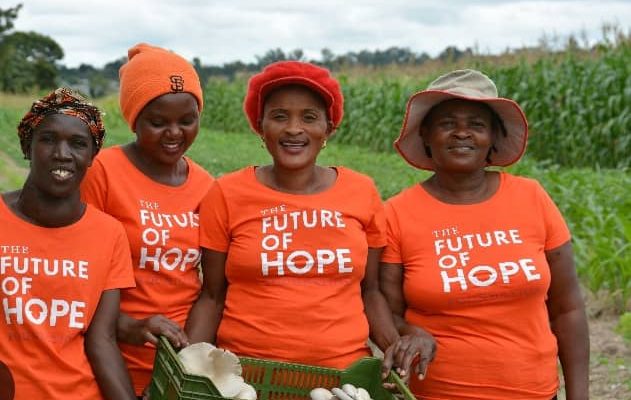Women in small rural communities are harnessing the power of mushroom farming to build dignity, income, and resilience. Supported by the Zimbabwe Resilience Building Fund (ZRBF) and the United Nations Development Programme (UNDP), these women are becoming agents of change.
Shumirayi Chindori, a community champion from Mushumi Ward, has trained 56 women across 7 wards in mushroom production. She says, “We never imagined mushrooms could change our lives this way. We were used to farming the hard way—ploughing, weeding, waiting for rains. Now, we are farming smart. Mushrooms don’t need much land or water.”
Women like Mrs. Chabayanzara, a mother of six, are now producing up to 40 kilograms of oyster mushrooms per cycle, selling them to local markets, schools, and restaurants. The profits are used to pay school fees, purchase groceries, and start savings groups. Mrs. Chabayanzara says, “I used to rely on my husband for everything. Now, I contribute equally at home. I walk into the shop and buy school uniforms with my own money—and that means a lot to me.”
The women have adapted to challenges like water shortages and scarcity of traditional substrates by using alternative materials like banana leaves and cotton waste. The programme is also shifting traditional gender dynamics, with men actively supporting their wives in mushroom production.
The initiative has inspired long-term aspirations, with many participants saving to purchase livestock or expand into mushroom processing. Dhumisile Msimanga, Programme Manager at the Embassy of Ireland, says, “What struck me most was the pride, the teamwork, and how women are leading while men are supporting. That’s true community resilience.”
With continued support, these women are not just cultivating mushrooms—they are cultivating hope. The initiative is a strategic investment in community resilience, empowering households to plan their futures and build a better life.




Comments